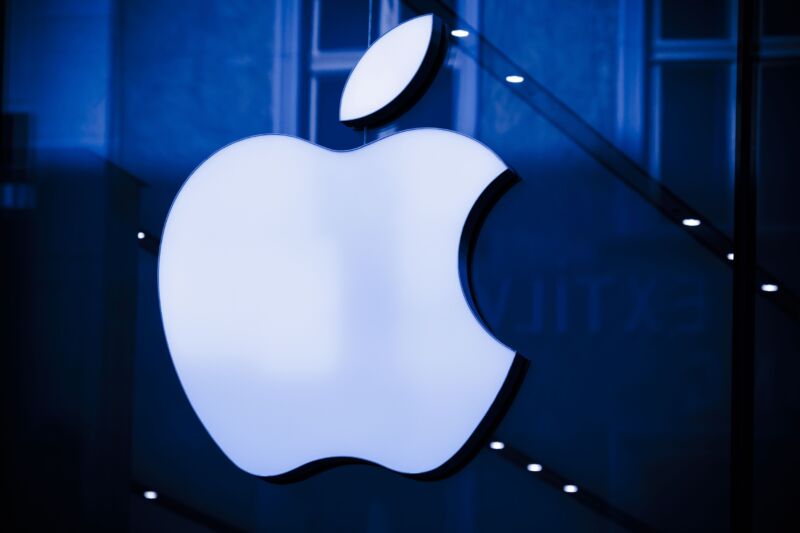Apple is top funder of lobby group that says it represents small developers

Apple provides over half the funding for a lobby group that says it represents small app developers, according to a Bloomberg article published today. Apple isn’t a member of what’s called the App Association, but “it plays a dominant behind-the-scenes role shaping the group’s policy positions, according to four former App Association employees who asked not to be named discussing internal matters,” Bloomberg wrote.
The App Association says it “gives a voice to small technology companies” and that its “policy priorities reflect the opportunities and challenges today’s small business app developers and IoT innovators face in the app ecosystem.” But its positions on major legislation have aligned with Apple’s. The group’s list of policy statements going back to early 2017 include some specifically praising Apple and others opposing legislation that Apple also opposes, such as antitrust bills targeting Big Tech.
One bill opposed by the App Association is the Open App Markets Act, which aimed to help app developers use alternative in-app payment systems and avoid Apple’s standard cuts of 15 to 30 percent. The Apple-funded group also opposed the American Innovation and Choice Online Act, which would have prohibited app stores and other large online platforms from giving preference to their own products at the expense of competitors. Both bills have stalled in the face of Big Tech opposition.
According to Bloomberg, the App Association (also known as “ACT”) confirmed that over half its funding comes from Apple, but “former employees say the actual percentage is much higher.” The group’s total funding was over $9 million in 2020.
“ACT representatives regularly testify in Congress, file court briefs in defense of Apple’s positions and host annual ‘fly-in’ meetings for developers with lawmakers,” Bloomberg wrote.
Apple drove increase in group’s funding
An App Association spokesperson told Ars that in 2020, “Apple’s commitment contributed more than 50 percent of the App Association’s sponsorship revenue, making their support one of many contributors for the year.” The App Association did not answer our question about what role Apple plays in shaping its policy.
The group also told Ars it “is proud to represent thousands of independent developers to foster an inclusive and secure developer ecosystem and app marketplace. Our members drive the organization’s policy and legislative agenda.”
“As per our preliminary 2020 [Form] 990 filings, the organization saw an increase in sponsorship revenue to support our small business members’ advocacy efforts such as privacy, broadband, and in helping our members navigate the early stages of the pandemic, including connected health, workforce maintenance/development, and access to government funding for ongoing business operations,” the App Association said.
The App Association’s website lists about two dozen employees and says the group “represents more than 5,000 app makers and connected device companies in the mobile economy.” The “members are located around the world, in all 27 member countries of the European Union and in all 435 congressional districts of the United States.”
The App Association told Ars that its full member list is proprietary, but 38 that agreed to be named publicly are listed here. US-based members include Concentric Sky, Startup Health, SheerID, Dogtown Media, Wellbeyond, Stroll Health, Project Hosts, Colorado Technology Consultants, MotionMobs, Rimidi, Southern DNA, Devscale, BadVR, CannedSpinach, BitSource, SentryOne, and AirStrip.
We contacted Apple today and will update this article if we get a response.
Group denies being mere front for Apple
According to Bloomberg, ACT President Morgan Reed “and other ACT executives said that they determine policy positions based on the preferences of their members and don’t take direction from Apple, though they take Apple’s positions into account.” Reed told Bloomberg in an interview “that it ‘doesn’t pass the laugh test’ to say the association is fronting for Apple.”
“Our job is to make sure we’re paying attention to the way that government can have an impact, unintended or otherwise, on all of those small businesses making cool software products,” he said.
Another group, called the Coalition for App Fairness, whose members include Basecamp, Deezer, Epic Games, Match Group, Proton, Spotify, and others, has lobbied in favor of Big Tech antitrust legislation. For example, the group argued that the American Innovation and Choice Online Act would “bar monopolistic platforms from discriminating among business users in a way that materially harms competition.”
The Coalition for App Fairness criticized the App Association in a tweet today. “An association that is funded primarily by Apple and represents Apple’s interests against developers and their customers, is a front group for Apple no matter how it brands itself,” the group said.
Apple has also opposed antitrust legislation in more direct ways. CEO Tim Cook publicly spoke out against legislation that would require Apple to allow sideloading, and the company ramped up federal lobbying expenditures and became one of the main funders of a new group called the Chamber of Progress.
https://arstechnica.com/?p=1882617